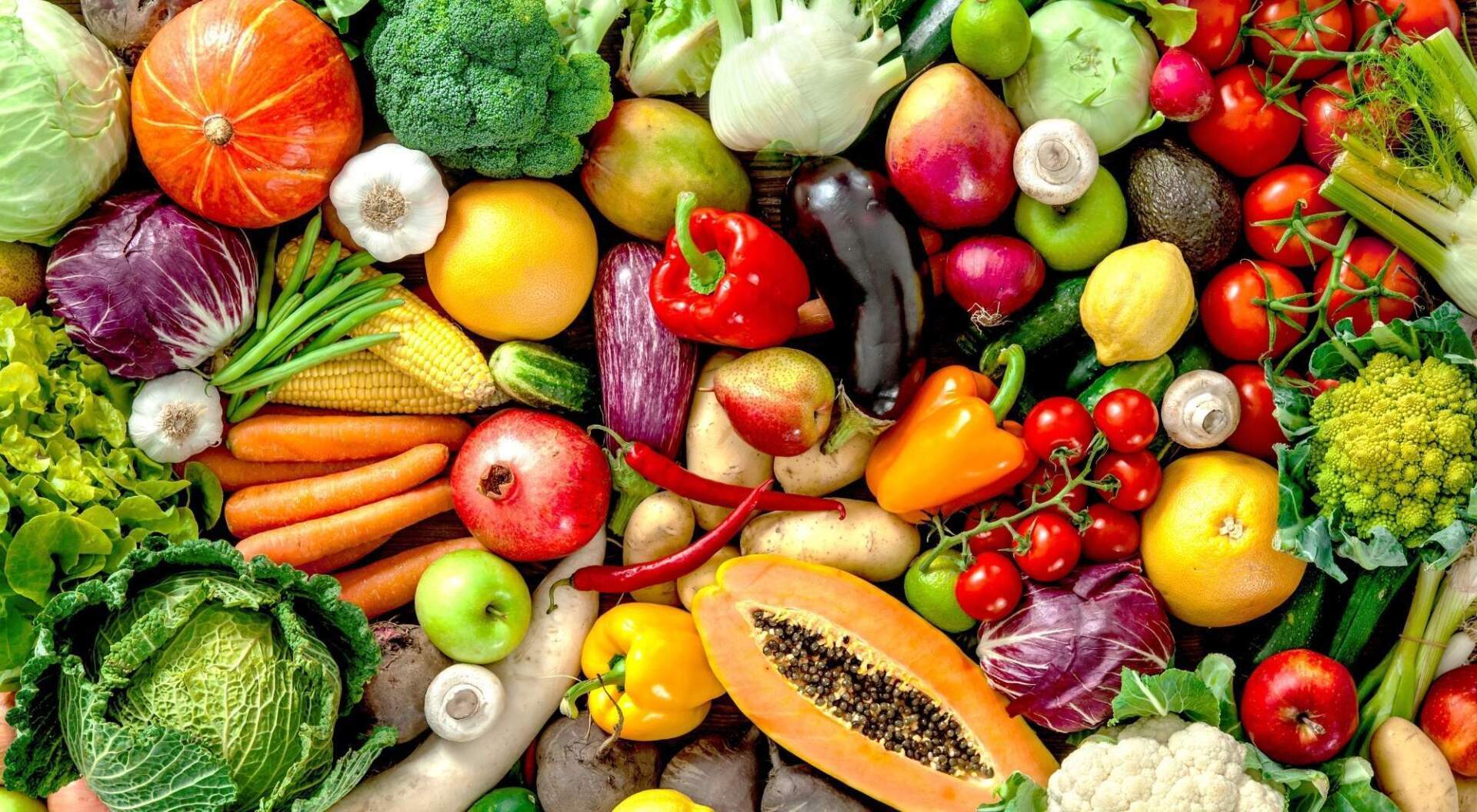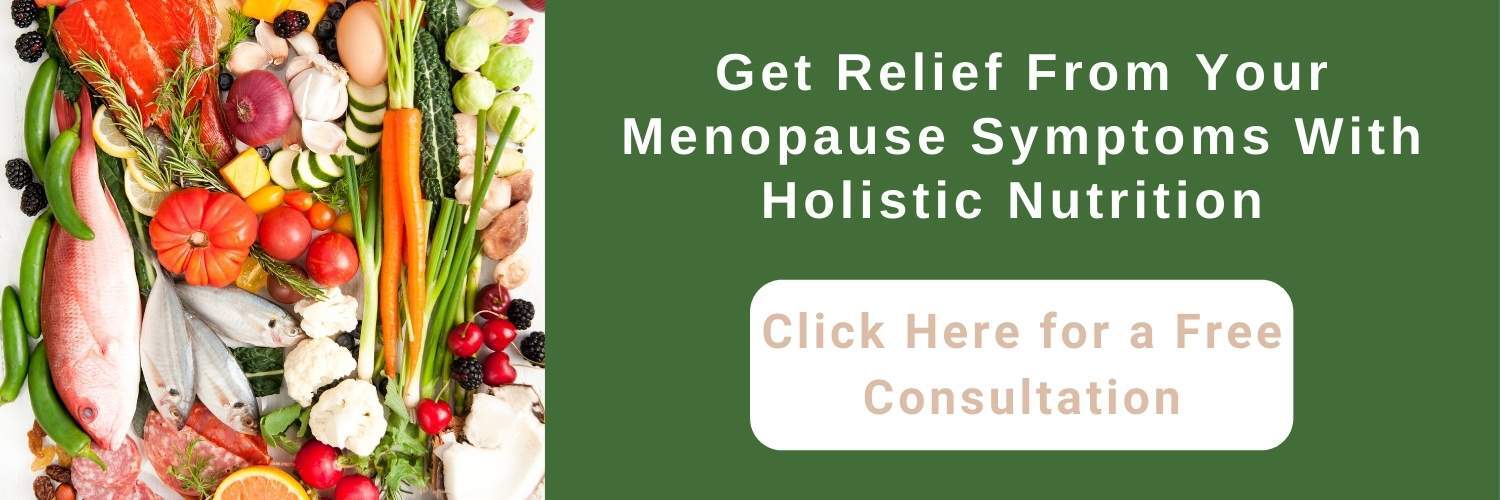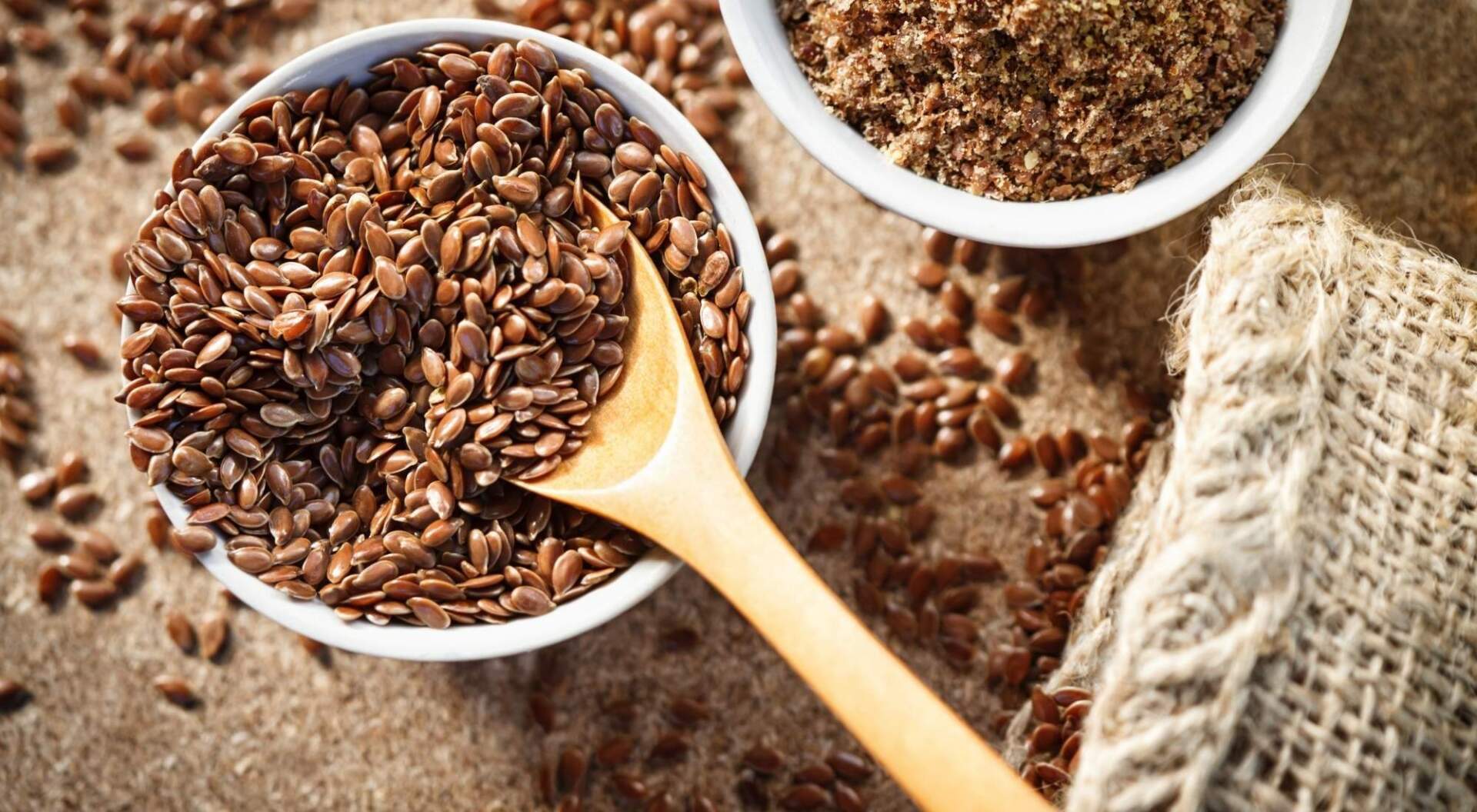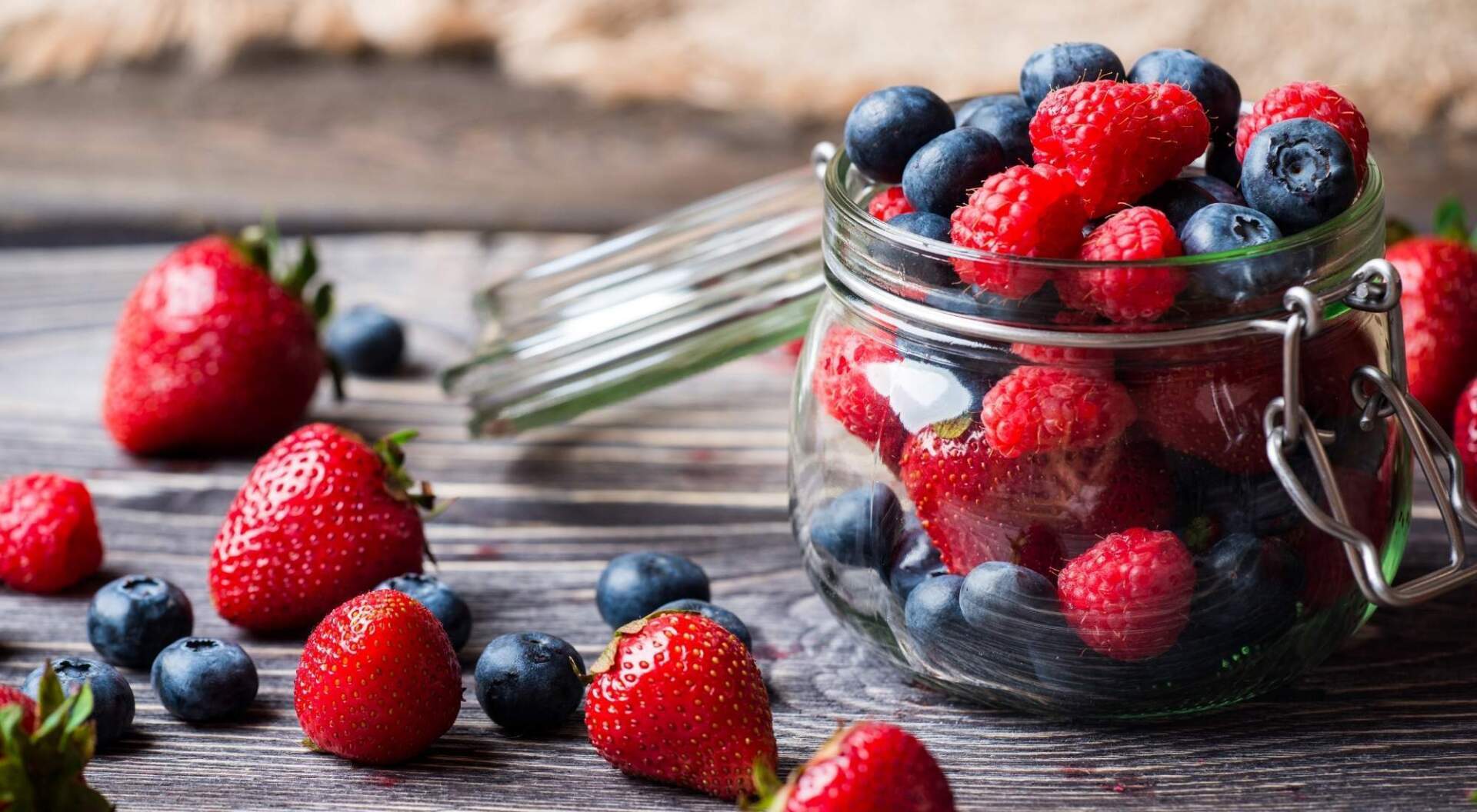Estrogen-Rich Foods For Menopause Relief: Here’s What You Need to Know
"The content below is not intended to be a substitute for professional medical advice, diagnosis, or treatment. Always seek the advice of your physician or other qualified health provider with any questions you may have regarding a medical condition."
If you’re in your 40s or 50s and find yourself standing in front of the open refrigerator when an intense burst of heat rushes to your face and upper body, there’s a good chance you’re going through “the change” called menopause.
Hot flashes are just one of the many uncomfortable symptoms that come with menopause.
But what if you could find relief from the hot flashes, weight gain, chills, and more?
And what if you could lessen those symptoms without expensive hormone replacement therapy, which can increase the chances of blood clots, heart attacks, strokes, and more.
Read on to learn about how estrogen and phytoestrogens can provide relief from menopause symptoms, whether consuming these phytoestrogens is safe, and which foods you can add to your diet to help ease menopause symptoms.
Table of Contents
The Relationship Between Estrogen and Menopause
Menopause is a natural biological process marking the end of a woman’s menstrual cycles and the ability to become pregnant. Menopause is officially diagnosed after 12 consecutive months without a menstrual period.
During menopause and the months leading up to it (perimenopause), your body produces less estrogen.
Menopause is often signaled by the following (usually unpleasant) symptoms:
- Hot flashes
- Vaginal dryness
- Chills and night sweats
- Difficulty sleeping
- Trouble concentrating/brain fog
- Joint and muscle pain
- Weight gain
- Mood changes
- Thinning hair
- Dry skin
Symptoms during this process of change can last an average of four years.
Hormone replacement therapy has shown to be effective in easing some of these symptoms.
However, some women prefer more natural methods.
That’s where phytoestrogens come into play.
What Are Phytoestrogens?
Phytoestrogens are compounds that naturally occur in plants and plant-based foods. They mimic estrogen in the body.
There are four main types of phytoestrogens:
- Isoflavonoids or isoflavones
- Lignans
- Coumestans
- Stilbenes
Plant-based diets are typically very rich in phytoestrogens.
How Does Consuming Foods Containing Oestrogen Affect Menopause?
When researching menopause, you may come across information on estrogen and oestrogen. In case you’re confused, the two words mean the same thing and can be used interchangeably.
To put it simply,
oestrogen is the spelling primarily used in the United Kingdom, while estrogen is how the word is spelled in the U.S.
Studies have shown what you eat can impact how menopause affects your body. Certain foods, including
plant oestrogen rich foods relieve menopause symptoms including:
- Hot flashes
- Decreased bone density; and
- Difficulty sleeping in some women.
Simultaneously, some ingredients found in many foods and drinks (such as caffeine and sugar) have been shown to agitate menopause symptoms.
If you’re interested in tackling your menopause symptoms
naturally, through diet and lifestyle changes, a
Nutrition Response Practitioner is the ideal place to start your journey.
HealthierU is an excellent resource if you’re considering holistic nutrition as your body changes due to menopause.
HealthierU’s mission is to help patients overcome their health issues with Nutrition Response Testing accompanied by nutrition and lifestyle guidance rather than medication or surgery.
Dr. Donna Sergi has helped thousands of patients remedy problems or symptoms associated with:
- Weight loss
- Digestive health
- Menopause
- Acid reflux
- Anxiety
- And more
Thanks to Nutrition Response Testing and oestrogen rich foods, menopause symptoms have been greatly relieved or eliminated completely for countless patients who’ve put their health and wellness in the hands of Dr. Sergi.
There’s no reason to suffer through months or even years of hot flashes, vaginal dryness, exhaustion, and other unpleasant symptoms when holistic nutrition could be the solution to those symptoms.
11 Estrogen-Rich Foods For Menopause Relief
Your diet most likely includes at least some phytoestrogens, especially if your diet consists of:
- Fruits
- Vegetables
- Legumes
- Grains
But, if you’re looking to reduce or eliminate menopause symptoms through diet and lifestyle, you want to make sure that diet includes these 11 foods high in estrogen for menopause.
Read on to learn about the foods you should stock your fridge and pantry with.
#1: Soybeans or Edamame
Edamame is a great way to enjoy soybeans. Edamame is immature soybeans, often sold frozen and prepared by steaming or boiling them with a sprinkle of sea salt.
They are rich in protein, vitamins, minerals, and phytoestrogens called isoflavones.
#2: Sesame Seeds
Studies have found eating sesame seeds regularly increases estrogen activity in postmenopausal women.
Sesame seeds are a common ingredient in many Asian recipes. Other ways to add sesame seeds into your diet include:
- Roasting and sprinkling sesame seeds over salads
- Adding raw sesame seeds to vegetable dishes to add crunch
- Sprinkling sesame seeds on top of rice
- Making sesame milk (similar to almond or hemp milk)
#3 Flax Seeds
Flax seeds are the richest dietary source of lignans, a type of phytoestrogen.
To incorporate flax seeds into your diet, try:
- Blending a few spoonfuls into your smoothie
- Sprinkling flax seeds on top of oatmeal, cereal, or berries
- Adding ground flax to hummus, nut butters, or salad dressings
- Baking them into bread, cookies, and other baked goods
#4: Garlic
If you frequently cook with garlic, you’re already taking advantage of a great source of phytoestrogens.
Research shows garlic can
influence estrogen levels in the body, possibly helping to reduce age-related bone loss.
#5: Berries
You’ve likely heard berries are a great source of antioxidants and a staple in a healthy diet.
While all berries pack a health punch of vitamins and minerals, a few are especially rich sources of phytoestrogens, including:
- Cranberries
- Raspberries; and
- Strawberries
#6: Peaches
Peaches (and nectarines) are packed with phytoestrogens called lignans.
Lignans exhibit biological properties including:
- Anti-inflammatory
- Antioxidant
- Antitumor activities
#7: Dried Fruit
Dried fruits are a great portable snack and a great source of nutrients. They’re also rich in phytoestrogens, especially:
- Apricots
- Dates; and
- Prunes
#8: Tofu
Tofu is a staple in many plant-based diets. Made from soy and packed with protein, tofu is also a fantastic source of phytoestrogens.
Tofu is a common meat substitute and is known for its ability to take on any flavor. It’s often used in:
- Soups
- Salads
- Stir-fries
- Desserts
- And more
#9: Cruciferous Vegetables
Yet another reason to eat your broccoli (and other veggies) –– they can help relieve menopause symptoms.
Cruciferous vegetables rich in phytoestrogens include:
- Broccoli
- Brussels sprouts
- Cabbage
- Cauliflower; and
- Kale
#10: Wheat Bran
Looking for a breakfast that’s rich in phytoestrogens?
Try wheat bran cereal, one of the most highly nutritious cereals you can find at your grocery store, thanks to its high content of fiber, protein, vitamins, minerals, and phytoestrogens.
#11: Tempeh
Tempeh is another soy product rich in phytoestrogens. This fermented soy product is a popular vegetarian meat replacement. Tempeh is rich in isoflavones, a type of phytoestrogens.
Tempeh can be eaten:
- On a sandwich
- On a salad
- Stir-fried or sauteed as a meat substitute
Are Phytoestrogens Safe to Eat?
Most research finds phytoestrogens consumed from a predominantly plant-based diet are safe and healthy in moderation.
As with many things in life, too much of a good thing can be bad. There are some potential risks, such as a hormonal imbalance called
estrogen dominance, if you consume too many phytoestrogens; however, these potential risks are minimal.
Estrogen Dominance Symptoms
Whether via hormone replacement therapy or consuming increased amounts of phytoestrogens through a plant-based diet, too much estrogen can cause your hormones to be unbalanced. This is called estrogen dominance. Symptoms of estrogen dominance in women can include:
- Weight gain
- Bloating
- Fatigue
- Mood swings
- Decreased sex drive
- Difficulty sleeping
- Memory problems
Before changing your diet significantly to include higher levels of phytoestrogens or starting any sort of supplement, it’s important to consult a health professional.
If you want to try managing menopause symptoms naturally by eating foods rich in phytoestrogens, HealtherU can guide you with a personalized nutrition program to avoid estrogen dominance and the symptoms that come with it.
Manage Your Menopause Symptoms With HealthierU
As experts in women’s health and wellness, HealthierU has helped many women manage their menopause symptoms through holistic nutrition practices.
If you’re looking to manage your menopause symptoms naturally,
Nutrition Response Testing and
personalized guidance on nutrition is a fantastic place to start.
Dr. Donna Sergi believes in a holistic approach to nutrition. With more than 25 years of experience and a lifetime committed to health and wellness, she knows that no two women’s bodies are alike. Menopause may impact one woman differently than another.
That’s why HealthierU develops
highly personalized programs, including everything from:
- Diet
- Whole food supplementation; and
- Exercise
...for each and every woman.






